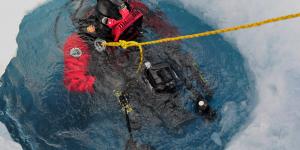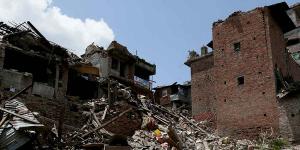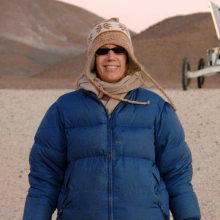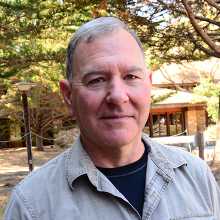Climate & Biogeoscience
Climate change is a vexing and longterm problem. Some of the important mechanisms and consequences of climate change can be gleaned from study of the atmospheres of other, nearby planets. Venus is an example of a world where the greenhouse effect has essentially destroyed an environment that may once have included oceans. Mars, too, has lost its surface water, but in a way that’s quite different from what’s happened to Venus. By studying, modeling, and comparing the atmospheres and physicochemical conditions that govern the climates of Venus, Mars, Titan, and Pluto, as well as those of planets beyond our solar system, our scientists gain deep understandings of what is driving the changes currently experienced on our own planet. This work demonstrates how even slight differences in an atmosphere’s average temperature can produce major changes in wind circulation, as well as in atmospheric composition and behavior. Surface phenomena, such as ice and permafrost, are important to understand, as they affect the relationship between carbon sources and sinks. These conditions have enormous consequences for weather, surface morphology, topography and mineralogy. Institute scientists use a panoply of tools in their studies of these phenomena, including remote sensing satellites, ground-based studies, and mathematical modeling and computer simulation. In addition, Institute geoscientists study how rocks under stress behave like batteries that can produce measurable currents. Understanding how to track those currents could lead to breakthroughs in earthquake prediction. Climate change is a challenge many are trying to address, but SETI Institute researchers, whose gaze is fixed on other worlds, can provide “laboratories” to study how these processes play out on other worlds and learn from them to improve our future on Earth.





